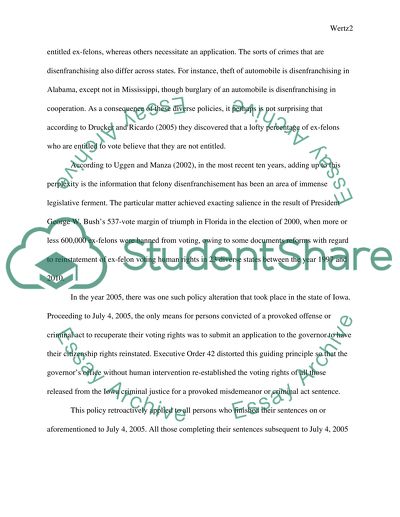Cite this document
(“How and Why Do Felon Disenfranchisement Laws Vary from State to State Research Paper”, n.d.)
How and Why Do Felon Disenfranchisement Laws Vary from State to State Research Paper. Retrieved from https://studentshare.org/sociology/1446132-how-and-why-do-felon-disenfranchisement-laws-vary
How and Why Do Felon Disenfranchisement Laws Vary from State to State Research Paper. Retrieved from https://studentshare.org/sociology/1446132-how-and-why-do-felon-disenfranchisement-laws-vary
(How and Why Do Felon Disenfranchisement Laws Vary from State to State Research Paper)
How and Why Do Felon Disenfranchisement Laws Vary from State to State Research Paper. https://studentshare.org/sociology/1446132-how-and-why-do-felon-disenfranchisement-laws-vary.
How and Why Do Felon Disenfranchisement Laws Vary from State to State Research Paper. https://studentshare.org/sociology/1446132-how-and-why-do-felon-disenfranchisement-laws-vary.
“How and Why Do Felon Disenfranchisement Laws Vary from State to State Research Paper”, n.d. https://studentshare.org/sociology/1446132-how-and-why-do-felon-disenfranchisement-laws-vary.


